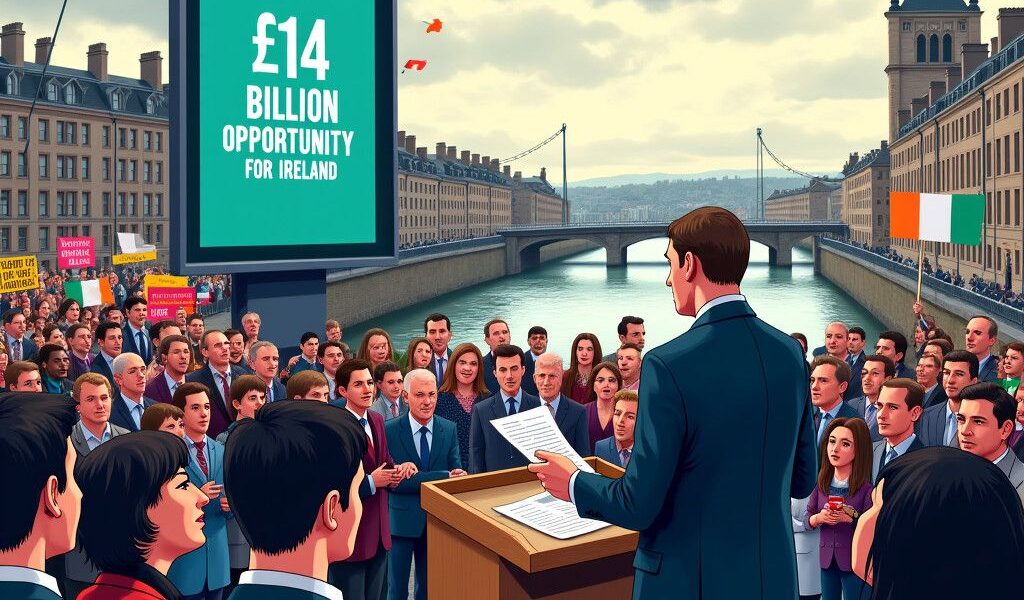Ireland Debates €14bn Apple Tax Windfall Ahead of Election
As Ireland prepares for its upcoming general election, a significant discussion centers around the €14 billion windfall resulting from a landmark ruling against Apple. This financial boost is linked to an EU decision requiring Apple to repay taxes it owed, as it had received what the EU deemed unlawful tax benefits. The political landscape is rife with proposals on how to best allocate these funds, particularly in addressing the nation’s pressing housing crisis.
Housing has emerged as the foremost priority among the political parties. Fianna Fáil has proposed an ambitious €4 billion investment in social housing. Meanwhile, Sinn Féin leads the charge with an even more substantial plan, advocating for €7.6 billion earmarked for public housing alongside an additional €1 billion for a housing redress scheme. These proposals reveal a keen recognition of the urgent need to tackle Ireland’s housing shortage, which has been exacerbated by rising property prices and stagnant wages.
The Green Party and Labour are also emphasizing infrastructure and housing development in their platforms. They echo the sentiment that substantial public investment is critical for fostering long-term stability in the housing sector. According to the Central Statistics Office (CSO), the number of new dwellings completed in Ireland in recent years has not kept pace with demand, leading to a significant backlog that politicians are now attempting to address.
Beyond housing, investments in transport and renewable energy are high on the agenda. Fine Gael and Fianna Fáil are advocating for improvements in water systems and electricity grids, which are essential for supporting sustainable urban development. The region’s infrastructure plays a crucial role in not only enhancing the quality of life for its residents but also attracting international investment. Studies indicate that robust infrastructure is a magnet for businesses, as companies often prioritize locations that offer reliable utilities and transport links.
The Green Party is taking a more environmentally focused approach, aiming to enhance public transport options and reduce reliance on private vehicles. This strategy aligns with broader EU goals aimed at minimizing carbon footprints and promoting sustainable urban environments. Their platform reflects a growing trend among European nations to invest in climate-friendly initiatives that not only address immediate infrastructure needs but also consider long-term environmental impacts.
Sinn Féin and Fianna Fáil also propose community-focused initiatives intended to uplift underdeveloped areas, paralleling broader governmental ‘levelling up’ policies seen across Europe. These proposals demonstrate a shift in political rhetoric, prioritizing community welfare and regional equity as fundamental components of economic development.
Critics and observers will be closely watching how these proposals translate into actual policy once the election concludes. The key will be ensuring that plans are both ambitious and realistic, balancing immediate needs with sustainable economic strategies. The allocation of this windfall could significantly influence Ireland’s social fabric, impacting everything from homelessness rates to urban migration patterns.
In summary, the debates surrounding the €14 billion Apple tax windfall reflect a significant moment in Irish politics, highlighting priorities that seek to redefine the social and economic landscapes of the nation. Housing remains the critical issue, but the way these funds are utilized will shape the trajectory of Ireland for years to come. Political parties must not only offer promises but also deliver actionable and impactful solutions in the wake of these unprecedented resources.








